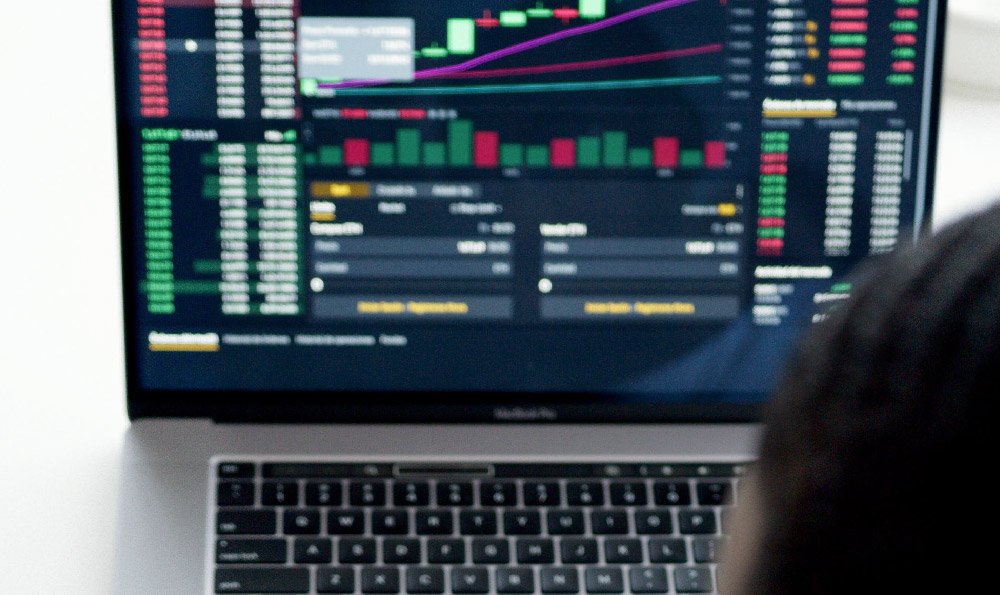Schwab's potential foray into Bitcoin investing has become a topic of considerable interest within the financial community. While Schwab currently doesn't offer direct Bitcoin trading, understanding the "how" and "why" behind a potential move into this space requires a nuanced look at the evolving landscape of cryptocurrency and the strategic considerations driving major financial institutions.
The "how" of Schwab entering Bitcoin investing likely wouldn't involve a complete overhaul of their existing infrastructure. Instead, they could explore several avenues, each with varying degrees of integration and complexity. One option is to partner with established cryptocurrency exchanges or custodians. This would allow Schwab to offer Bitcoin trading to its clients without directly handling the complexities of digital asset storage and security. Clients could access Bitcoin through Schwab's familiar interface, but the actual trading and custody would be managed by the partner firm. This approach minimizes risk for Schwab while providing clients with access to Bitcoin.
Another possibility is the creation of a dedicated cryptocurrency platform or a subsidiary specifically focused on digital assets. This would involve building the necessary infrastructure for trading, custody, and compliance, allowing Schwab to have greater control over the entire process. However, this option is more capital-intensive and requires significant expertise in blockchain technology and cybersecurity. A phased approach, starting with a smaller offering like a Bitcoin ETF, could precede a more comprehensive platform.

A more likely near-term scenario involves offering access to Bitcoin-related investment products, such as Bitcoin ETFs or futures. These regulated products allow investors to gain exposure to Bitcoin's price movements without directly owning the cryptocurrency. Schwab could easily integrate these products into its existing trading platform, providing clients with a familiar and regulated way to invest in Bitcoin. This approach aligns with Schwab's reputation for providing clients with diverse investment options within a secure and well-regulated environment. The success of existing Bitcoin ETFs would certainly influence Schwab's decision-making process on this front.
Now, the "why" behind Schwab considering Bitcoin investing is multifaceted. Firstly, there's undeniable client demand. Bitcoin has gained significant traction among retail and institutional investors alike. Many Schwab clients likely express interest in adding Bitcoin to their portfolios, either for diversification, potential high returns, or as a hedge against inflation. Ignoring this demand would mean potentially losing clients to competitors who already offer Bitcoin-related services. Schwab, known for its customer-centric approach, would naturally consider meeting this expressed need.
Secondly, the regulatory landscape surrounding cryptocurrencies is becoming increasingly clear. While still evolving, regulatory frameworks are being developed in the United States and globally, providing greater clarity and legitimacy to the digital asset space. This increased regulatory certainty reduces the risk associated with offering Bitcoin-related products and services. As regulations become more defined, established financial institutions like Schwab become more comfortable entering the market.
Thirdly, the potential for revenue generation is a significant driver. Offering Bitcoin trading or investment products would create new revenue streams for Schwab through trading fees, management fees (for Bitcoin ETFs), and other related services. In a competitive market, companies constantly seek ways to expand their product offerings and increase profitability. Bitcoin represents a potentially lucrative opportunity for Schwab to achieve these goals.
Furthermore, Schwab recognizes that Bitcoin and blockchain technology are likely to play an increasingly important role in the future of finance. Embracing this technology, even in a limited capacity, positions Schwab as a forward-thinking company that is adapting to the changing financial landscape. By offering Bitcoin-related services, Schwab can attract a new generation of investors who are tech-savvy and interested in digital assets. This can help ensure the long-term growth and relevance of the company.
However, Schwab also faces significant challenges and considerations. The volatility of Bitcoin is a major concern. Bitcoin's price can fluctuate dramatically in short periods, which can expose investors to significant losses. Schwab would need to educate its clients about the risks associated with Bitcoin investing and ensure that they understand the potential for losses. Risk management strategies and clear disclosures would be crucial.
Security is another critical concern. Bitcoin wallets and exchanges are vulnerable to hacking and theft. Schwab would need to implement robust security measures to protect its clients' digital assets. This includes using cold storage for Bitcoin, multi-factor authentication, and other advanced security protocols. The reputation of Schwab is paramount, and a security breach involving Bitcoin could have serious consequences.
Regulatory compliance is also a complex and ongoing challenge. The regulatory landscape for cryptocurrencies is constantly evolving, and Schwab would need to stay abreast of the latest regulations and ensure that its Bitcoin-related activities comply with all applicable laws. This requires significant investment in compliance resources and expertise.
Ultimately, Schwab's decision to enter Bitcoin investing will depend on a careful assessment of the risks and opportunities. They must weigh the potential benefits of meeting client demand, generating revenue, and positioning themselves for the future of finance against the challenges of volatility, security, and regulatory compliance. A gradual and measured approach, starting with Bitcoin ETFs or futures, seems the most likely path forward. This allows Schwab to test the waters, gather data, and gradually build its expertise in the digital asset space. The future of Schwab and Bitcoin is intertwined, and the next few years will be critical in determining how this relationship evolves. They will likely monitor the performance of existing Bitcoin ETFs closely, gauge client interest in Bitcoin-related products, and continue to analyze the regulatory landscape before making any significant moves into direct Bitcoin trading or custody.












